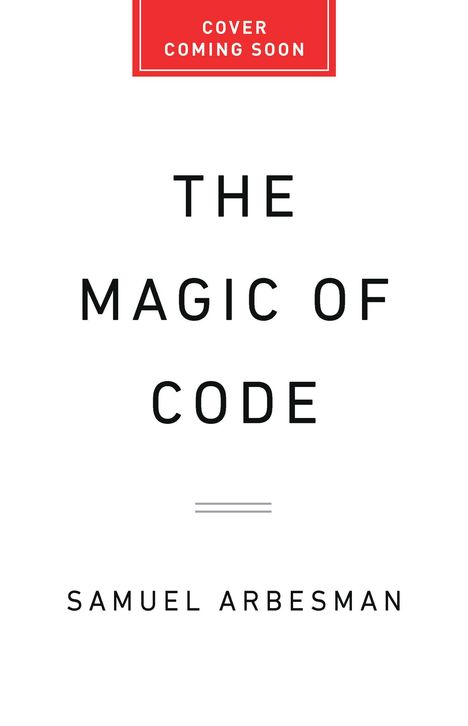Samuel Arbesman: The Magic of Code, Gebunden
The Magic of Code
- How Digital Language Created and Connects Our World--And Shapes Our Future
(soweit verfügbar beim Lieferanten)
- Verlag:
- PublicAffairs, 06/2025
- Einband:
- Gebunden
- Sprache:
- Englisch
- ISBN-13:
- 9781541704480
- Artikelnummer:
- 12017214
- Umfang:
- 304 Seiten
- Gewicht:
- 504 g
- Maße:
- 241 x 159 mm
- Stärke:
- 27 mm
- Erscheinungstermin:
- 10.6.2025
- Hinweis
-
Achtung: Artikel ist nicht in deutscher Sprache!
Klappentext
In the tradition of classics such as The Lives of a Cell, a bold reframing of our relationship with technology that argues code is "a universal force---swirling through disciplines, absorbing ideas, and connecting worlds" (Linda Liukas).
In the digital world, code is the essential primary building block, the equivalent of the cell or DNA in the biological sphere---and almost as mysterious. Code can create entire worlds, real and virtual; it allows us to connect instantly to people and places around the globe; and it performs tasks that were once only possible in science fiction. It is a superpower, and not just in a technical sense. It is also a gateway to ideas. As vividly illustrated by Samuel Arbesman, it is the ultimate connector, providing new insight and meaning into how everything from language and mythology to biblical texts, biology, and even our patterns of thought connect with the history and nature of computing.
While the building block of code can be used for many wondrous things it can also create deeper wedges in our society and be weaponized to cause damage to our planet or our civilization. Code and computing are too important to be left to the tech community; it is essential that each of us engage with it. And we fail to understand it to our detriment.
By providing us with a framework to think about coding and its effects upon the world and placing the past, current, and future developments in computing into its broader setting we see how software and computers can work for people as opposed to against our needs. With this deeper understanding into the "why" of coding we can be masters of technology rather than its subjects.

